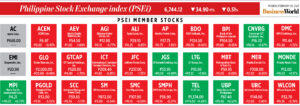Doping and the whistleblowers

The crusade against the use of Performance Enhancing Drugs (PEDs) in sport has always been a challenge faced by “clean” athletes, sports administrators, and leaders. One reason for the continuing use of PEDs is ignorance or lack of education on the use of substances that are sometimes packaged as vitamins or energy drinks which turn out to contain banned substances. Another, and probably the more prevalent one, is an expensive, well-planned, and tailor-made doping program that includes masking methods to elude detection by authorities like the World Anti-Doping Agency (WADA) and National Anti-Doping Organizations or NADOs. Such guarantees embolden athletes and athletes’ managers to take calculated risks.
There have been many athletes, professional and amateur, who have figured in doping controversies not because they were confirmed to have taken banned substances but merely had the signs of doping. One such example was a female Dutch track and field sprinter who was the subject of loose talk in Athletics circles because of acne or pimples.
In an interview with Francesca Menato several years ago, Dafne Schippers complained, “I hate it when people ask me those questions (about the relationship between acne and doping). I work so hard as a really good athlete, do my diet, follow the sleep patterns, and live my life for the sport. When someone asks you things like that, it’s really hard. What can you say?”
Schippers, continues, “It’s hard with my skin. It’s me and who I am. Acne is something that runs in the family, our mother had acne until she was 30 or 40. Some people say, “Oh, that’s a typical sign of doping.”
Schippers is primarily a sprinter after having competed in the grueling eight-event heptathlon. I saw her compete in the 200-meter run in the 2015 world championships in Beijing where she won the gold medal, and at the 2017 edition in London. She ran the 200 meters in 21.63 seconds, the fastest time in history. Menato says that when journalists interviewed her after the race, they were more interested in what she was taking rather than her training.
Schippers’ acne raised concerns, according to Menato, that she was doping with performance enhancing drugs. In a moment of pique, her coach told the British paper, The Guardian: “If you walk down the street in Holland, I can point out 10 girls her age (29) with that skin. I understand that it’s one of the things you have when you are doping but sometimes you just have bad skin. It’s unfair. It’s in her family.”
Schippers reveals her frustration and says in the Menato interview, “As a woman it’s not so funny to suffer from acne. It’s hard to have that and hard to have people say things about that on a personal level. People are questioning your sporting integrity and your personal side in one go.”
Fifteen-year-old Russian figure skater Kamila Valieva has a totally different problem. With what appeared to be unblemished skin that is however expected of a 15-year-old and fully made up for international television, Valieva was allowed to participate at the 2022 Beijing Winter Olympics in February despite being found positive in a doping test taken on Dec. 25, 2021, that surfaced in the middle of the Games. The Games opening ceremonies had Vladimir Putin of Russia as its guest. Putin was a guest although technically Russia was not competing as the whole Russian Federation has been suspended from Olympic competitions, due to state-sponsored, -instigated, -orchestrated, -manipulated doping of athletes in many sports especially Athletics.
The team Putin was watching was the Russian Olympic Committee squad which won the gold in the team figure skating competition with the help of the “loaded” Valieva. It was not the Russian nation’s team. In fact, the Russian team was not even allowed to use the Russian flag.
The stories of Schippers and Valieva show different facets of the doping problem in sports. In the case of the Dutch sprinter, it is clear that she and the Netherlands Federation have nothing to do with doping and the Federation is presumably waging an active war against it. A totally different perspective is offered by Valieva. The teen claims that her father, a doctor, created his own concoction of an “energy” drink. Whether such a concoction was cleared with the figure skating Federation is unclear. What is strange, however, is that there seem to be loose controls regarding the use of substances by athletes of a country that has become notorious for doping. One would expect that since that is their reputation, they would be more circumspect or careful.
Given these perspectives, one can speculate that doping in some sports is prevalent for certain reasons.
One of these is the people in the International Federation that are responsible for anti-doping measures and actions are themselves doping enablers and instigators. They do not believe in a level playing field but want to have an extra advantage over the competition. Too much money and pride are at stake. One just recalls the controversy that surrounded the sport of cycling several years ago that seemed to indicate that some top-level officials were involved in some anomalous practices, including cover-up schemes.
It has also been reported that those who want to keep sport clean are not given enough support and protection when they decide to report and provide concrete evidence of doping and signify their willingness to testify. It becomes easier and safer to just “mind one’s own business or look the other way.” It does not pay to be honest and enforce the rules and uphold values. Russian whistleblowers found themselves in deep trouble and had to seek asylum in other countries when they cooperated with independent investigators in revealing the Russian government’s involvement and participation in doping.
Clearly, a lot of support needs to be given to the World Anti-Doping Agency to augment the fine work it has done over the years. The culture of whistleblowing, anchored on honesty, has to be developed further and strengthened through leaders and staff with integrity and courage.
Philip Ella Juico’s areas of interest include the protection and promotion of democracy, free markets, sustainable development, social responsibility and sports as a tool for social development. He obtained his doctorate in business at De La Salle University. Dr. Juico served as secretary of Agrarian Reform during the Corazon C. Aquino administration.




